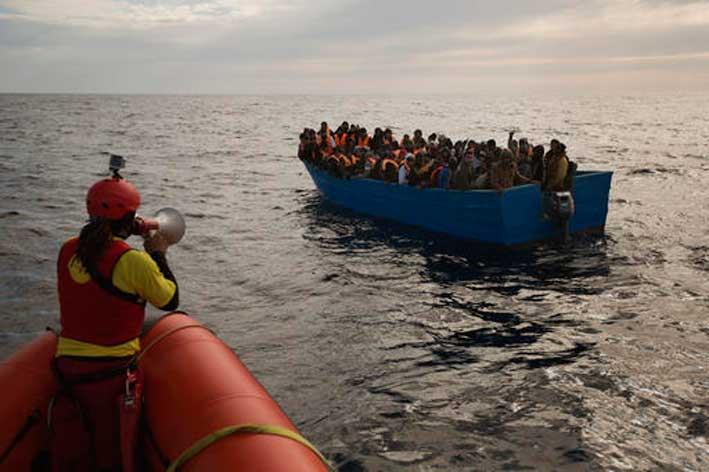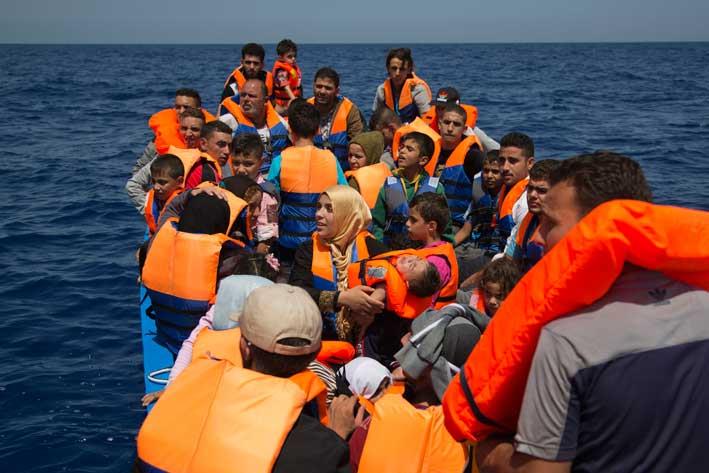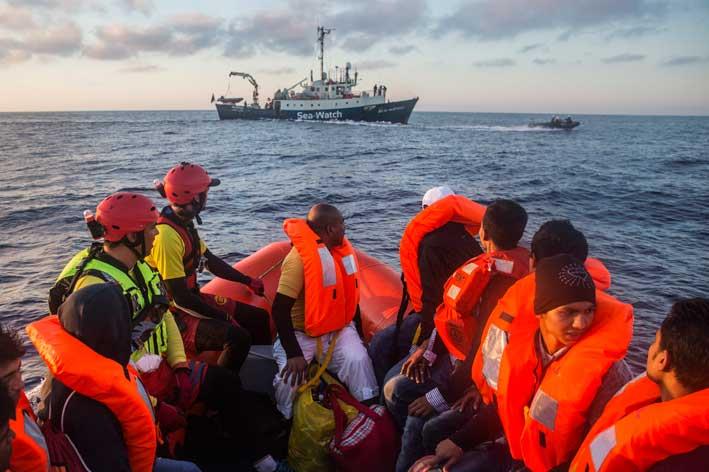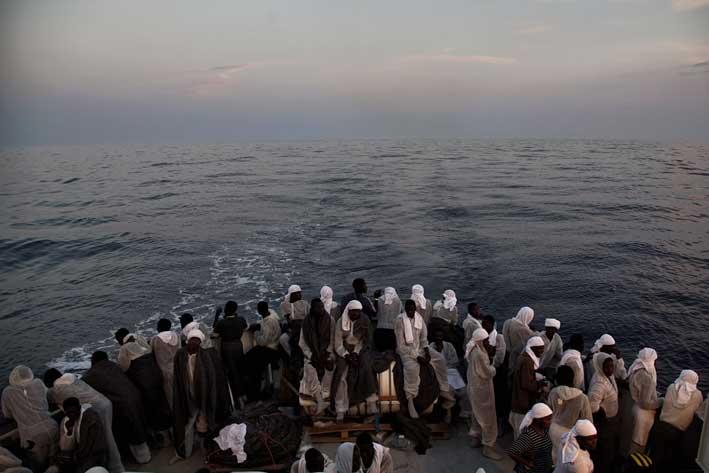Ninety human rights organisations have blasted the European Union’s plans to return or detain irregular migrants, saying that the plans unveiled this week ahead of next week’s EU summit will simply create more harm and suffering.
Bowing down to political pressure to be “tough” on irregular migration, the European Commission has turned its back on the full implementation of human rights safeguards in its Returns’ Directive and is actively pushing member states to lower the bar, they said.
The European Commission this week launched a set of recommendations to member states on return and detention. The policy was released without any prior consultation with civil society and local authorities on the same day they gathered for the EU Migration Forum, the Commission’s official annual forum to consult stakeholders.
As well as falling short in terms of good governance, the Commission document puts forward an interpretation of human rights that effectively undermines them. It urges member states to detain migrants more quickly and for longer periods of time, and presents increased returns as a key deterrent to migration. The results of such policies are expected to be a weakening of human rights safeguards in the return and the asylum process. The linking of asylum to return, as well as the explicit targeting of specific nationalities of asylum seekers accused of “abusing” the asylum system is shocking.

As just one of the extremely worrying examples, according to the European Council for Refugees and Exiles, one of the 90 organisations who signed a letter of protest against the plans, the Commission instructs member states to opt for prolonged detention and to apply the maximum possible detention period, specifically targeting member states that apply shorter periods as “bad examples”. “It encourages widespread detention of persons deemed to be at risk of absconding, a notion which the Commission has significantly broadened,” the ECRE said. It promotes the wide use of entry bans and insists that member states use all of the flexibility foreseen in the legislation to derogate from the full application of the safeguards in the Returns’ Directive.
“There is no evidence that immigration detention or forced removal has a deterrent effect, or is sustainable. Detention and forced returns are extremely harmful practices that have long-lasting severe physical and mental health impacts as well as high risks of suicide. Re-emigration rates among returnees are high and forced removal has not been shown to lower the migration aspirations of the communities to which people are returned.
“The Commission has set out to dismantle the key tenets of the EU Returns’ Directive by encouraging member states to interpret the directive in a way that would allow for the lowest possible safeguards to be applied, abandoning positive advances made by a number of member states. The Commission has also stated that it stands ready to revise the Returns’ Directive if it transpires that the safeguards presented in the directive will stand in the way of increasing return rates.

“As civil society representatives of citizens and migrant communities we would like to be proud of the Europe we live in and continue to support the European project. We cannot do this unless the EU Commission will hold firm to its commitments to human rights and rule of law, promote the implementation of the highest human rights standards in its legislation, consult with civil society and rely on the strength of evidence on how to best manage a complex social and economic phenomenon in the face of pressure to find quick fixes.”
Central Mediterranean Route and the Malta Declaration
Ahead of the European Council meeting next week, the Commission and the High Representative/Vice-President reported for the third time on the progress made under the Migration Partnership Framework and presented the first steps taken to implement actions along the Central Mediterranean Route, as laid out in the Malta Declaration of 3 February
The Commission said that €200 million has been pledged by the EU for migration-related projects in Libya and North Africa through the EU Trust Fund. This, it said, comes on top of other projects launched in 2016, focusing on providing protection to most vulnerable migrants and creating socio-economic opportunities at local level.

The Commission said that discussions are under way to focus support on protection at disembarkation points and in detention centres, as well as support for alternatives to detention.
“The contribution to socio-economic stabilisation in Libya will also be addressed through work at the municipality level. This will add to the work to enhance rescue at sea, as well as the training of the Libyan Coast Guard. Strong coordination on the ground will also be sought with member states.”
When it comes to Libya, the Commission said that support is to be focused “on protection at disembarkation points, as well as on the humanitarian assistance to those migrants who are in reception/detention centres, while increasing the development of alternatives to detention.
“The contribution to socio-economic stabilisation in Libya will continue to be addressed, in particular through work at the municipality level.”

EU urges members to take in the refugees they promised to
The European Union is meanwhile still pleading with member states to step up the relocation of asylum-seekers from Italy and Greece, seeking to give new momentum to a plan that is now far short of its targets.
The EU is even holding out the threat of legal action if nations don't comply.
EU nations agreed, in September 2015 at the height of the migrant influx to Europe, to share 160,000 asylum-seekers who had arrived in Greece and Italy over two years. But the EU's executive Commission said Thursday that so far only 13,546 have been relocated, 3,936 of them from Italy and 9,610 from Greece.
It said relocations hit a monthly record in February, with 1,940 people moved, but that pace is still well below expectations.

"There are no more excuses for the member states not to deliver," Migration Commissioner Dimitris Avramopoulos said. "It is possible and feasible to relocate all those who are eligible from Italy and Greece by September."
Countries' responsibilities to fulfil their pledges to accept refugees will not end then, he added.
"It is as if you have an outstanding bill. You have to pay it," Avramopoulos said.
Attitudes among many EU members to accepting asylum-seekers range from unenthusiastic to hostile. The Commission said only two countries, Malta and Finland, are now on track to meet their obligations in full.
If there are no "tangible results" by September, the EU executive "will not hesitate to make use of its power" to take legal action against offending countries, Avramopoulos said.
Also this week, the EU pressed members to do better in returning home migrants who don't qualify for asylum. Among other things, Avramopoulos said, they could "place migrants in detention, if there is a risk of absconding".